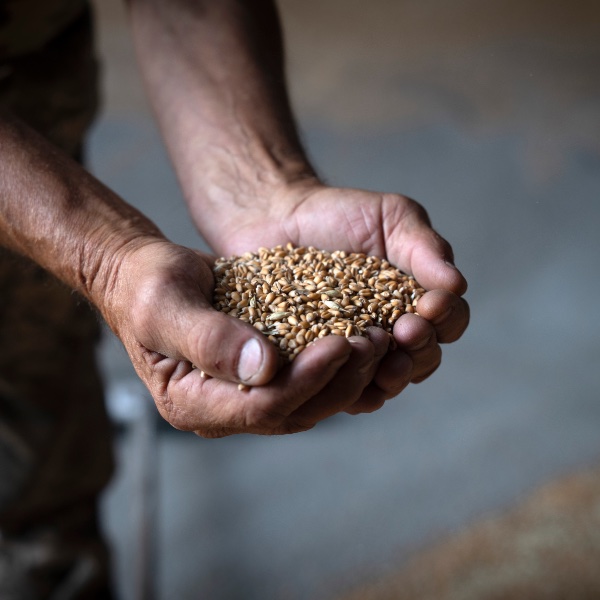The Rationality of Prepping: A Comprehensive Guide to Long-Term Food Security
In an era marked by uncertainty and unforeseen challenges, the concept of prepping for long-term food security has often been met with skepticism and misconceptions. It’s a topic that has gained notoriety through reality TV shows like “Doomsday Preppers,” painting a picture of extreme individuals preparing for apocalyptic scenarios. However, it’s crucial to delve deeper into the world of prepping to understand the rationale behind it and why it’s not as irrational as it may seem.

Debunking the Prepper Stereotype
Preppers, a term predominantly associated with American culture, encompass a diverse group of individuals with one common goal: to prepare for various emergencies by stockpiling supplies. While the media often portrays them as extreme and eccentric, it’s vital to dispel the stereotype that all preppers are preparing for the end of the world.
Prepping for Real-World Scenarios
Prepping is not solely about preparing for a doomsday scenario. Many preppers focus on more immediate and realistic threats, such as natural disasters or economic downturns. These individuals prioritize the well-being and safety of their families by ensuring they have access to essential resources when needed.
The Significance of Long-Term Food Security
Understanding Food Security
Food security, as defined, is the assurance of having consistent access to an ample supply of affordable and nutritious food. While developed countries often enjoy stable food supplies, disruptions can and do occur. Events like natural disasters, pandemics, and political tensions can strain food supply chains, resulting in shortages and price increases.
Vulnerable Supply Chains
Long-term food security takes on added importance in regions marked by political turmoil, civil unrest, and rioting. Such situations can disrupt supply chains, limit resource access, and create scarcity of essential goods. In regions experiencing instability, food shortages and price spikes can exacerbate existing tensions, further destabilizing the situation.
The Scarcity Mindset
During times of crisis or uncertainty, individuals may experience heightened stress levels, leading to psychological changes. This stress can trigger a “fight or flight” response, causing individuals to prioritize their survival and well-being over others. Seemingly irrational behaviors, like panic buying and stockpiling, can result from the scarcity mindset, driven by fear and anxiety.
The Benefits of Prepping for Food Security
There are several compelling advantages to maintaining a long-term food supply:
Reduced Reliance on External Systems
Stockpiling food reduces dependence on supermarkets and external systems, which can become unreliable during emergencies. Having a well-stocked pantry allows families to weather crises without panic or desperation.
Financial Security
Food prices can fluctuate, especially during emergencies. A long-term food supply enables individuals to purchase items when prices are low and avoid price hikes during shortages, saving money in the long run.
Health and Nutrition
A stockpile of nutritious, non-perishable foods ensures access to a balanced diet during emergencies, contributing to overall health and well-being.
Peace of Mind
Knowing that a plan is in place and provisions are readily available can alleviate stress and anxiety during emergencies.
Challenges of Prepping for Food Security
While the benefits of long-term food security are evident, several challenges must be considered:
Storage Space
Stockpiling a significant amount of food requires ample storage space, which can be limited in smaller homes or apartments.
Cost
Purchasing food in bulk can be expensive upfront, posing a challenge for those on tight budgets.
Rotation and Expiration
Properly managing a long-term food supply necessitates monitoring expiration dates and regularly rotating items to ensure freshness.
Maintaining Balance
Maintaining a balanced approach to prepping is crucial. Overemphasis on prepping can lead to neglect of other aspects of life, potentially resulting in social isolation.
Striking the Right Balance
Achieving equilibrium in prepping for food security is key. Here are some tips to strike the right balance:
Start Small
Begin gradually by adding extra non-perishable items to your grocery list, focusing on staples like freeze-dried meats, fruits, and vegetables.
Implement a Rotation System
Use a first-in, first-out (FIFO) rotation system to ensure freshness and avoid waste.
Budget Wisely
Allocate a portion of your monthly grocery budget to prepping supplies, allowing you to build your stockpile over time.
Diversify Your Food Supply
Include a variety of shelf-stable alternatives like freeze-dried meals and emergency food bars in your stockpile.
Educate Yourself
Learn about emergency preparedness, food preservation, gardening, and cooking from scratch to become more self-sufficient and make informed decisions about your food storage.
Consider All Aspects of Preparedness
While food security is vital, also think about other aspects of emergency preparedness, such as water storage, first aid supplies, and communication tools.
In Conclusion
Embracing a preparedness mindset offers a valuable perspective when considering long-term food security. Planning for potential emergencies reduces the risk of being caught unprepared and minimizes the strain on limited resources during a crisis. Having a well-stocked food supply provides a sense of control and peace of mind. In the end, the benefits of preparedness far outweigh the potential drawbacks of having unused supplies. Prepping for long-term food security isn’t about paranoia; it’s about prudence in an unpredictable world.
Take a look at more prepper stuff here.
